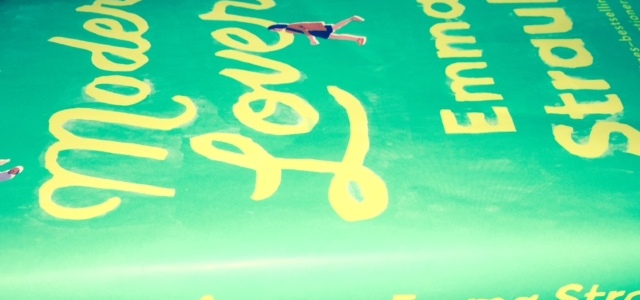I thought about beginning this morning with a story about a game. It was a game with two teams. One that came to play at the beginning, played hard, worked hard, and did everything they could, played almost as well as they could possibly play.
And then there was another team, a team that apparently forgot what time the game started, played terribly and then finally decided to begin playing near the end. And some how, some way, mostly because they had an adequate kicker, the second team won. That’s grace -getting better than what you deserve.
Today’s Scripture passage, which we’ll get to in a minute, is really a passage about two ideas, two concepts, two understandings of life that shape us and matter to us, and that really get us riled up – fairness and grace. We’ll get to grace later, we’re in church after all, but I want to begin with what’s fair.
As a child I remember one of the things I said over and over again when I didn’t like what was happening I would often say it, and I imagine many of you did too – that’s not fair! And my dad, in his wisdom and sympathy, usually had a quick rejoinder – well guess what, life isn’t fair! This story probably explains a lot why I am the way I am.
And we know that’s true, don’t we?
Fairness isn’t just something kids talk about it. It’s at the heart of how we think about work and family and politics and everything else – I work so I should get what I worked for – that’s only fair. The system is rigged against those who aren’t rich and who aren’t wealthy – so how are we going to change so everybody gets a fair shot. Most elections are fought over those two arguments. It’s about what’s fair, what’s just and how can we build a city, a community, a state and a nation based on our ideals.
And you know that Jesus talked an awful lot about fairness. Many of his most well known stories center around the intersection between fairness and grace. It’s right there in the Prodigal Son, maybe the most famous one of all – it isn’t fair, the older son complains, that his dad throws a huge party for the younger one, you know the one who left them and spent his money on drinking and prostitutes and only came back because he was tired of cleaning hog slop. Our inherent compass of fairness is why some of us struggle with the Old Testament – how is it fair that God blesses the Israelites while cursing the Egyptians – the plague of the first born is celebrated when your an Israelite, when your an Egyptian who lost a generation of kids, well that’s a much different deal isn’t it?
So, it shouldn’t surprise as we gather, at least a few of us anyway, on Labor Day weekend, that we come to hear Jesus tell a story that seems to be about labor and management, hiring and pay, generosity and capitalism, but is really about this old argument – what’s fair and what is the place of grace.
The Kingdom of Heaven, Jesus begins, is like a landowner going to Lowes to hire workers on a scorching hot day. And you know how this goes – don’t you, the landowners hires some in the morning – they are confident enough that they try to negotiate a fee. He went about lunchtime and then in the mid-afternoon and he did the same – he hired folks who were waiting for a job. He didn’t tell them what they would pay – only that he would pay them whatever is right. In the story he comes back around 5, too – we don’t know if he needed more workers or he knew people needed work, and so he came and he picked them up and he said – go to work. They didn’t ask the wage, they didn’t bother to negotiate, they were just thrilled to have a little work and hoping they might get a little something out of it for their day of mostly sitting and waiting.
And as we hear this story, our expectations aren’t probably much different than the ones who heard it the first time. The ones who worked the longest will get the most pay, the ones who worked least the less. That’s the way it’s supposed to work, right? That’s what’s fair.
Imagine people working outside all day in the heat we’ve had this summer, maybe on a roof, and you can get why the workers who had been there the longest were certainly counting on this kind of pay structure.
The landowner got his manager and he told him to pay the people, but start with the ones who showed up last. He gave them a day’s wage – what generosity – work a little, get paid enough. And he did the same for the ones at 3 and the ones who got there at noon. The ones who had been there all day were counting on a bonus -and guess what they didn’t get it. They got a day’s wage, what was right by custom and general agreement, but watching that the others got the same – they weren’t happy. There’s a couple of stronger words that probably describe how they were feeling, but we’re in church and well you know. They weren’t happy, and they let the landowner know about it.
This wasn’t fair. This wasn’t right. This isn’t the way the world is supposed to work. You work hard, you get rewarded. You don’t work hard, you don’t. We worked all day and got nothing for it. We should have shown up at 5 -because you know what really made them mad – listen to the line of Scripture – what’s up with that – you have made them equal with us. We didn’t work the same, didn’t put in the same amount of time, nothing about our work was equal, only thing equal was the pay.
The landowner replied: “Did you get a day’s wage, would you have taken at the beginning of the day? You would have. You aren’t mad at the amount you got, you’re mad the others got the same as you. Are you envious because I am generous?”
Grace, Don Ferguson reminded us a couple of weeks ago, is always controversial when its lived out. It’s equally controversial when its given to the people we don’t think deserve it. Grace, my friends, is never nice and sweet. It always comes with an edge, always pokes us, always reminds us that it is for the people who don’t deserve it.
Most of us think of ourselves like the workers who worked all day don’t we? We think that we get what we deserve while God’s generosity to others is too much. That’s why we get mad sometimes. That’s why we draw lines that God doesn’t. That’s why church people can be more judgmental than anyone. That’s why instead of celebrating we become skeptical of people who come to faith late. Instead of rejoicing at hospital room conversions, like God does, we roll our eyes or make a snide remark. There might be an envelope waiting for them, but it better not have as much as the one that’s waiting for me.
It reminds me of a quote from a book I read a long time ago, in college, when I was first coming to faith. I wasn’t like a lot of our youth here who have come to faith in Christ at a young age – it took a little longer for me. Max Lucado, many of you have probably read some of his books, wrote a book called In the Grip of Grace. In the book, he writes about the conversion of a serial killer whose name should be familiar to those of us of a certain age – Jeffrey Dahmer – and how news of that conversion made him feel. Listen to his honesty.
“Can I tell you what troubles me most about Jeffrey Dahmer? Not his trial – no sign of remorse, no hint of regret. Not his punishment. His conversion
Months before an inmate murdered him, Jeffrey Dahmer became a Christian. Said he reprinted. Was sorry for what he did. Profoundly sorry. Said he put his trust in Christ. Was baptized. Started life over. Began reading Christian books and attending chapel. Sins washed. Souls cleansed. Past forgiven. That troubles me. It shouldn’t, but it does.”
The truth, of course, for you and me and all of us, is that grace is never bad news, it’s never something to sneer at. We’re more like the workers who showed up at 5 and received the landowner’s generosity than we are the people who showed up at 9 and earned their money.
When I take an honest look at myself, my life, my faithfulness, my relationship with Christ, it’s a lot easier for me to fathom the relief, being overwhelmed with thanksgiving, of knowing that I don’t deserve all that I’ve been given, of being able to look back at my life and see all the ways that all of it has been grace. So many times God saved me from myself. So many times I could have easily gone another way and something, some force, some person that I didn’t even know was saying don’t go that way, go this way. We are all, as the writer Micha Boyett puts it, being written by a generous author.
I imagine I’m not the only one who has come to know this. Thank God we don’t get what we deserve. Seriously.
Fairness isn’t what we want, in the end, is it – to be judged for what we’ve done, to be evaluated by how well we’ve loved our neighbors, to have our merit, particularly in outraged America, be based on how we loved those who are different, how we treated people who don’t see the world the same way we do.
We might work all day, but most of the day we tend to work more against the ways of God than for them, don’t we? Most of the day we work on being right a whole lot more than we do on being righteous. Most of the time our relationship with God is the last thing on our minds. Most of the time when we come to pray at night, if we’re honest, we’ve got a whole lot more to confess than we do to offer to God. While we see ourselves as the older brother our lives are a whole lot more like the younger one. Our work for God is more the amount of the one who showed up at 5 than the one who had been there all day.
Grace – it’s summed up in verse 12 – it makes us equal. God is so generous that God has made us equal.
God has overlooked all the ways we’ve been asleep and made us alive in Christ. God has made us equal -heirs to the promise, sons and daughters of the creator and redeemer of the universe. God has made us equal – failing to see all the marks we’ve made against ourselves, instead seeing only the beautiful one that God has redeemed. God has made you equal, more than you deserve, more than you could ever earn. God doesn’t care what time you show up, just as long as you get there.
When you come to the end of that day, because God came and picked you up, there’s going to be an envelope – and when you tear that sucker open, whether you’ve been faithful a long time or a little, where you’ve known without a doubt or barely held on while being assailed by your doubts, whether you’ve given everything for Jesus or whether following Jesus was something you struggled to do but did the best you can, you’re going to receive something way more than what is right. For you are going to be made equal – you are going to be given not what you’ve earned, not what you deserve, but you are going to be given an inheritance that you could never make for yourself.
So, yeah grace isn’t fair. Grace says that no matter who you are, what you’ve done, how short you’ve fallen, God never closes the door. My friends, if you know what that feels like this morning, if you’ve never grasped the Gospel before today, if you aren’t sure what church and faith and Jesus and the Gospel is about – this is it – God isn’t fair. God is generous.
And in God’s accounting, there is always room, plenty of good room, for you, for me, for us all. You can have fair. Give me grace. Every single day. I’m taking it to the bank.
Amen.








